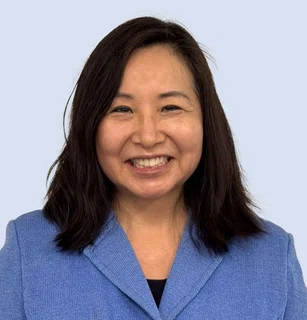Published in London & New York
10 Queen Street Place, London
1345 Avenue of the Americas, New York
Creditflux is an
company
© Creditflux Ltd 2024. All rights reserved. Available by subscription only.


Opinion Credit

This time around, BlackRock will be poised to be a shaper of the move
by Lisa Lee

Lisa Lee
Deputy editor
Creditflux
USD 12bn seems a lot to pay for HPS. But BlackRock urgently needed to catch up in private credit
Imagine being HPS Investment Partners. The alternative asset manager was one of the last independent shops in what has become one of the hottest plays on Wall Street: private credit.
Would you field suitors in a glamorous M&A pursuit? Or would you go for a public listing, making for a splashy IPO? And in either event, where in the billionaires list would your founders join?
Well, we have an answer now. The firm, led by Scott Kapnick along with colleagues Scot French and Michael Patterson, has been wooed into the embrace of BlackRock, the biggest money manager in the world, for a very rich purchase price of USD 12bn. For Kapnick, French and Patterson the deal points to a nice payout, but for the industry the transaction may mark the end of its adolescent growth spurt.
Larry Fink’s shop is paying a 30-times multiple to boost BlackRock into the top five private credit managers by AUM, as Creditflux previously reported. The price tag is also a 25% premium to the trading price of Ares Capital Management prior to the deal announcement, which BlackRock’s combination with HPS bumps down to sixth place.
Apollo dwarfs everyone else
But the cost may matter little compared with the benefits of catching up after getting caught short-footed in private markets. The firm’s great rival Blackstone has built a private credit outfit with AUM of USD 252bn, while BlackRock stood at a comparatively paltry USD 89bn before the deal, according to Edward Jones data. And better not to mention Apollo, the biggest player in the space, that dwarfs everyone with USD 475bn of private credit assets.
True, the combined AUM of private credit leaders Apollo, Blackstone and KKR — or HPS’s USD 150bn total AUM including private credit — can seem but a trickle compared to BlackRock’s more than USD 10tn of total AUM. The fees for alternative assets, however, tot up a lot higher than those for plain-vanilla equities and bonds. Private credit managers typically earn around 3.5% of fees, far more than their public market counterparts.
To track the history of HPS is to follow the trails of private credit evolution. The founders of the firm all hail from Goldman Sachs, one of the pioneers in the industry. In a period when banks gladly employed their balance sheet for riskier leveraged lending, Goldman Sachs instead raised funds from institutional investors for a mezzanine debt strategy before and even during the Global Financial Crisis. (Goldman Sachs continues to have sizeable direct lending operations through its asset management arm.)
Then Scott Kapnick, who had been head of investment banking at Goldman Sachs, decamped for JPMorgan Chase in 2007, taking along colleagues French and Patterson, as well as Purnima Puri and Faith Rosenfeld to be part of Highbridge Capital Management. HPS stood for Highbridge Principal Strategies.
Banks were pushed to de-risk
After the GFC, the mood at the global banks shifted. Regulators, wanting no repeat of the crisis, pushed them to de-risk, and get out of ancillary businesses such as private equity and venture capital. Many complied. Some banks even shed leveraged lending and private credit activities from their asset management arms, even though that segment was using outside money. It was no longer fun to be at a bank.
In 2016, Kapnick and other HPS partners bought out HPS from JPMorgan and established it as an independent firm. They couldn’t have left at a better time.
That year was also when Doug Ostrover, Marc Lipschultz and Craig Packer — top executives at Blackstone, KKR and Goldman Sachs, respectively — started Owl Rock to do direct lending. A year later, Blackstone began to focus more on private credit, especially the direct lending segment.
Initially content to lend to companies that fell below the radar of investment banks’ capital markets, soon enough private credit managers were banding together to offer billion-plus loans to private equity sponsors and taking deals away from the syndicated leveraged finance markets. The last three years have seen a turbo-charging of growth, when investment banks were mostly sidelined due to hung debt and a closed CLO market.
Now many of these asset managers are setting their sights on a bigger prize: investment-grade lending, or so-called asset-backed lending, once again taking advantage of banks’ withdrawal from the space. This time around, BlackRock will be poised to be one of the shapers of the move.
As for JPMorgan, while their early exit may have cost them an HPS payout, the M&A group at least should be pleased. JPMorgan served as lead financial adviser to HPS, which also was advised by Goldman Sachs, Bank of America, Deutsche Bank, BNP Paribas and RBC Capital Markets.





